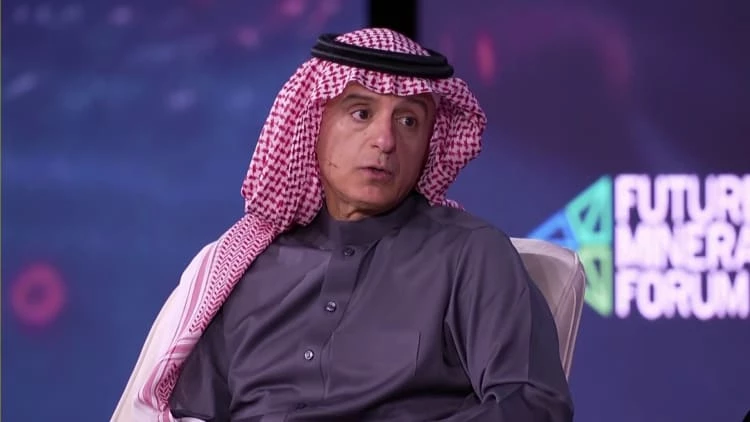Saudi Arabia said on Wednesday that the estimated value of its mineral resources had nearly doubled to $2.5 trillion, highlighting a sector it hopes will help diversify its oil-reliant economy.
"I am delighted to announce that our estimation for the kingdom's untapped mineral potential has increased from $1.3 trillion to $2.5 trillion, an increase of 90 percent," Industry and Mineral Resources Minister Bandar Alkhorayef told a conference in Riyadh.
"This is based on new discoveries in the form of rare earth elements, and a combination of the increase of volumes of phosphate, gold, zinc and copper, as well as the revaluation of these minerals."
The earlier valuation of $1.3 trillion had been cited by officials including Saudi Arabia's de facto ruler, Crown Prince Mohammed bin Salman, since at least 2017.
Under Prince Mohammed, the world's biggest crude oil exporter hopes to diversify away from fossil fuels, and the government is eyeing the mining sector as a potential source of billions of dollars in foreign direct investment each year.
Risk intelligence firm Verisk Maplecroft wrote last year that the focus on mining was "among the more feasible parts" of Prince Mohammed's Vision 2030 reform agenda, aided by existing mines, plants and infrastructure including railways.
Energy Minister Prince Abdulaziz bin Salman told the conference that rather than being called an oil-producing country, "what we are working on is that we would like to be an energy-producing country for all sources of energy".
Last year, the kingdom's deep-pocketed sovereign wealth fund, the Public Investment Fund, and state mining firm Ma'aden established Manara Minerals to snatch up global mining assets.
Manara announced its first high-profile acquisition, a 10-percent stake in Brazil's Vale, in July.
But foreign investment in Saudi Arabia "remains far behind ambitious targets", said Torbjorn Soltvedt of Verisk Maplecroft.
"The mining sector still represents one of the best bets for boosting foreign investment, but Saudi Arabia has yet to secure a landmark agreement with a major global mining company for any of its active mining licences."
While the valuation jump announced on Wednesday could help, Soltvedt said the current dynamic "mirrors a broader problem: Saudi Arabia is still seen more as a source of funding than a destination for FDI."
- US, Africa outreach -
This week's conference in Riyadh drew delegations from "over 77 countries", organisers said, including resource-rich African countries where Saudi Arabia is expected to pursue mining acquisitions.
Washington sent a large contingent including Geoffrey R. Pyatt, assistant secretary of state for energy resources, who told reporters his government was focused on "how we de-risk our dependence on China, especially for so many of the key inputs that are going to be a pacing factor in the success or failure of our energy transition."
Soltvedt said mining could become "another pillar" of ties between Washington and Riyadh, who have navigated a tricky oil-for-security partnership for decades.
"A formal arrangement where Saudi Arabia acquires African mining assets and US companies secure rights to buy some of the production has yet to emerge," Soltvedt said.
"But discussions will continue, especially as Saudi Arabia becomes more active in the African mining sector this year."


